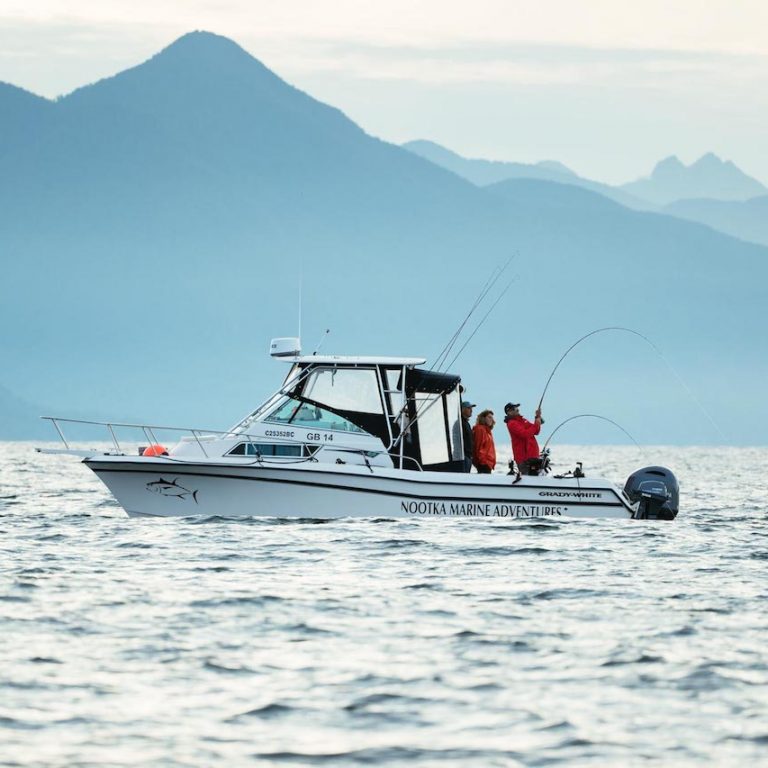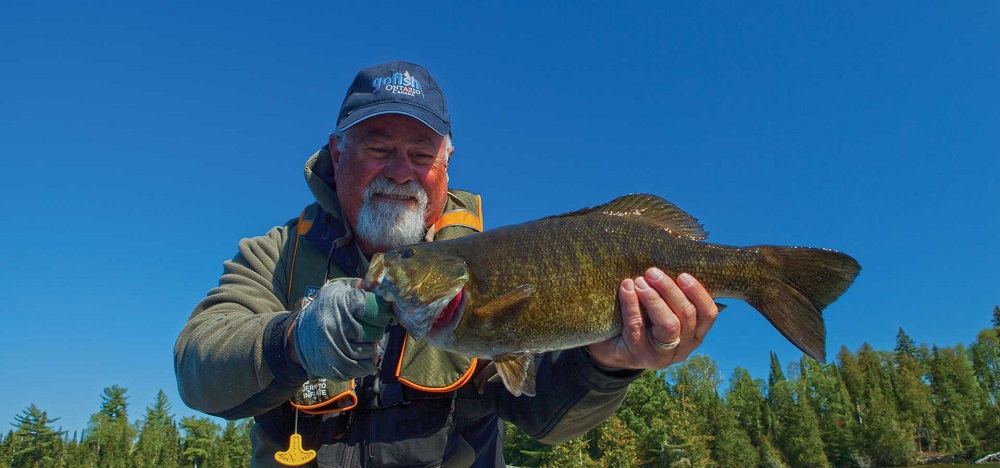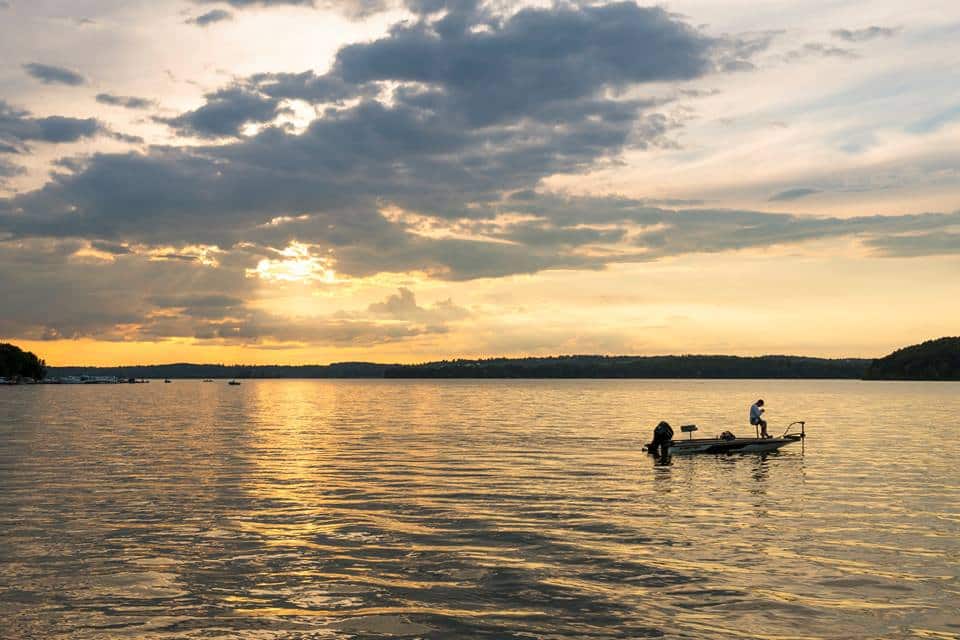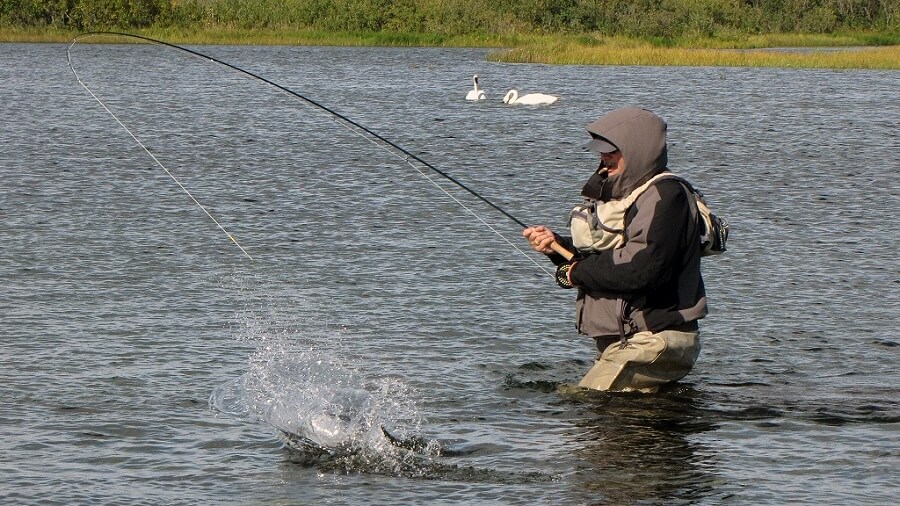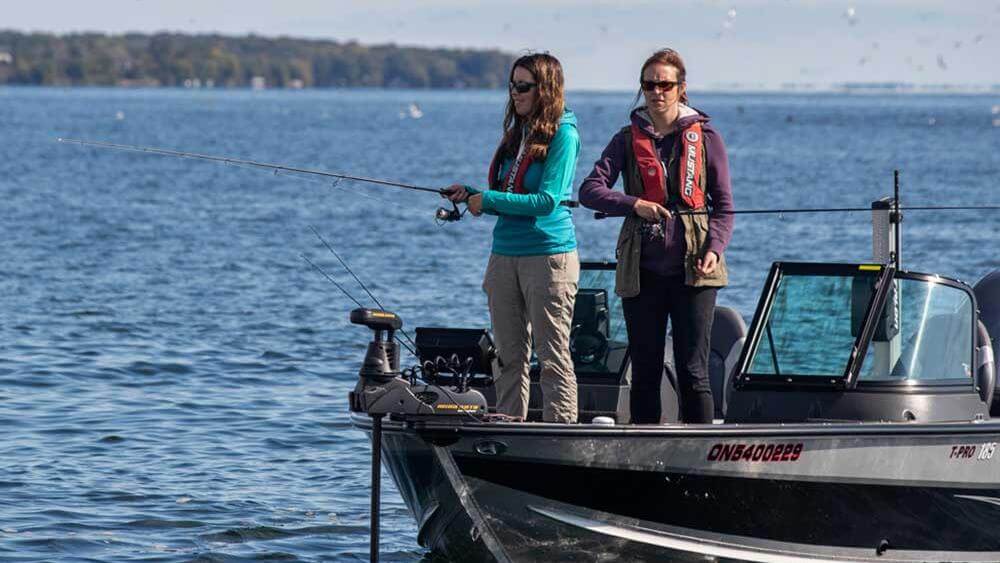Getting a BC fishing license is not as easy as it sounds. It’s a process that involves lots of information, forms, and paperwork. You might think you’re leaving the details to the professionals or going to buy your BC fishing license online, but do you know how to do that? This article will guide you through all the steps to get your B.C. fishing license in no time.
How to Get a BC Fishing License
Getting a BC fishing license is easy, and there are plenty of ways to do it. Whether you’re looking to fish in public waters or private land, here’s everything you need to know to get your license.
The first step is to check with your local government to see what regulations are in place for fishing in your area. Many municipalities have specific rules, such as a daily limit on the number of fish that can be caught or a size limit on the fish that can be taken.
Once you know the rules, you can get a fishing license from your local government. Licenses can be purchased online or at the municipal office.
Once you have your license, you must find a fishing spot. Public waters in BC are open to everyone, regardless of whether they have a fishing license. However, some areas of private land may be closed to fishing without permission from the landowner.
If you want to fish on private land, you must ask the landowner for permission. Some landowners may charge an entrance fee, while others may allow unrestricted access for visitors with fishing licenses.
Finally, check the regulations of a particular lake and consider what type of fishing may be allowed.
How to fish in BC?
If you’re lucky enough to live near a lake, you’ll always have access to public land open to fishing. You only need a fishing license, which can be purchased online or at the local government office. However, if you plan to catch trophy fish from private land, remember that some landowners may require permission (and an entrance fee) before allowing visitors to do fishing activities. Although there’s no such thing as ‘catch-and-release,’ some areas allow for ‘catch-and-cull’ by politely asking for permission, so it is really up to you to handle this situation. In BC, fishing is a great way to pass the time and let your inner fisherman out. When in doubt, check their current fishing regulations with your local government office.
Where To Get a Fishing License?
If you want a fishing license in British Columbia, you can go to a few different places. The BC Conservation Department issues licenses through licensing offices in most major centers. You can also buy licenses online or at some retail stores. In addition, many outfitters offer fishing licenses as part of their package deals.
To find the licensing office nearest you, visit the website of the BC Conservation Department. The website also provides information on how to get a fishing license for children, seniors, and those with disabilities.
If you want to buy a fishing license online, the best place to start is the BC Fishing License Finder. This website allows you to browse by license type and by region. You can also compare prices and reviews from other customers before you buy your license.
If you want a fishing license at a retail store, your best bet will likely be a local store selling outdoor gear. Many stores also sell fishing licenses as part of their inventory.
Fishing is one of the most popular outdoor activities in British Columbia. If you plan on getting into the sport, having the proper equipment and knowledge is essential. The Ultimate Guide To Buying A Fishing License is designed to help you buy a fishing license in British Columbia. This guide contains all the information you need to get started, from determining what license and where you should buy it to how much it costs, when and where to fish, common mistakes people make when purchasing fishing licenses, and more. You will also get information about the different licenses available for purchase. The guide even allows you to compare prices at various retailers, so there are no surprises. If you want to learn more about buying a fishing license in British Columbia, check out this guide today!
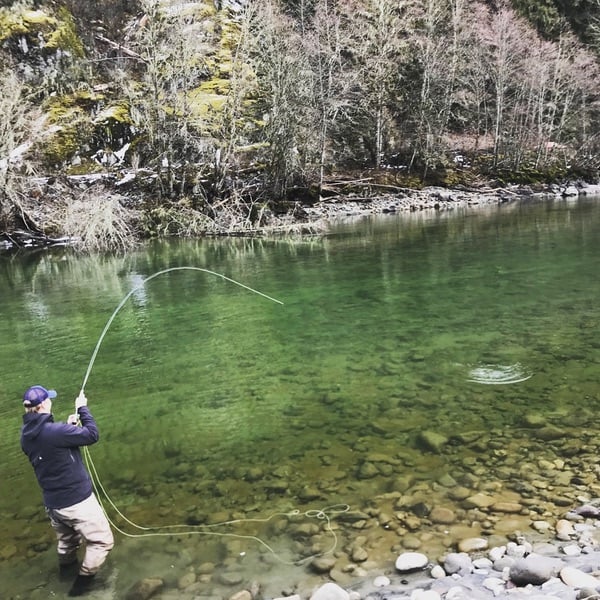
What to Bring With You When Acquiring a BC Fishing License?
When you go to purchase your BC fishing license, there are a few things you will need to bring with you. This includes your driver’s license, residency proof, and fishing license.
Your driver’s license must have your current address on it. Proof of residency can be anything that shows you live in British Columbia, such as a utility bill or bank statement. If you do not have any of these items, you can still purchase a BC fishing license, but you must provide some other form of identification.
Your fishing license is the most critical piece of documentation that you will need when purchasing a BC fishing license. Bring this document with you when you go to the licensing office. It should also be noted that if you are under 16, your parent or guardian must accompany you when purchasing the fishing license.
Types of Fishing Gear to Bring on an Adventure in the Country
If you’re looking for a BC fishing adventure, but don’t know where to start, read on for our ultimate guide to getting a BC fishing license.
Regarding fishing in British Columbia, you can pursue three main fishing types: fly-fishing, spin-fishing, and casting. Each has its own set of gear and techniques that make it unique. Here’s a breakdown of each type:
Fly Fishing: This is the classic BC fishing method – using artificial flies to take advantage of the natural food sources in the water. You’ll need a good fly rod, reel, line, and some tippet material (doubles). A good pair of aquatic binoculars is also a must – not just to see your prey but also to keep an eye out for another fisherman!
Spin Fishing: Spin fishing involves spinning a line around a stationary object – in this case, a rock or pole. This process casts your lure into the water column and allows it to swim near or even into the mouths of fish. You’ll need an excellent spinning rod with sensitive tackle (bobbers and weights) and a good line (a 50-pound test is standard). A good pair of aquatic binoculars is also a must – not just to see your prey but also to keep an eye out for another fisherman!
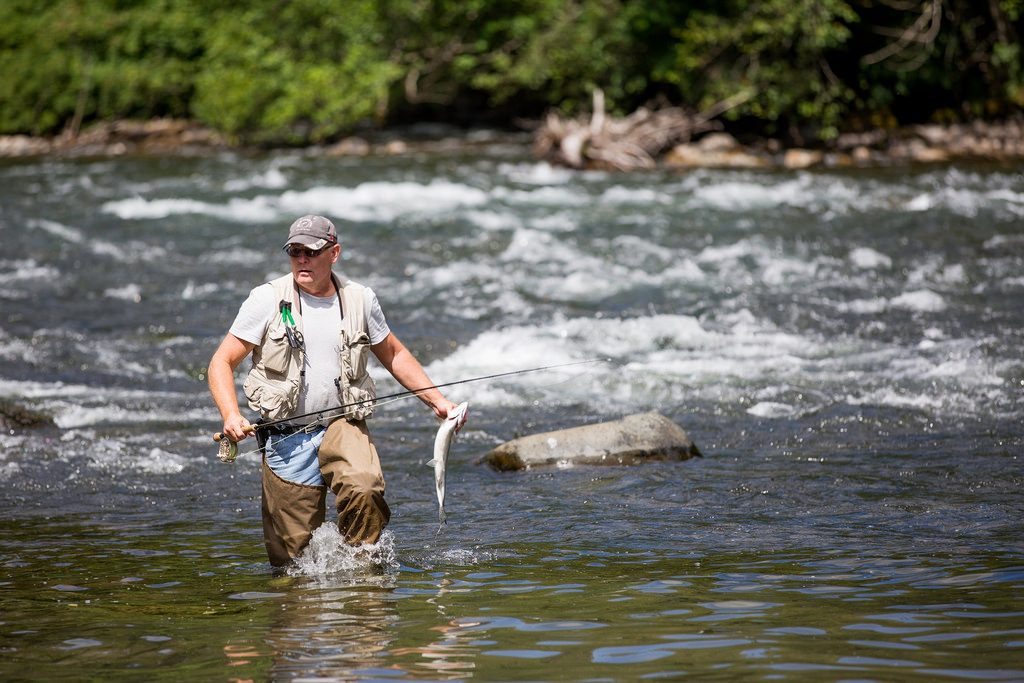
Equipment Needed for Different Types of Fishing Restrictions
When it comes to fishing, not every spot is open to everyone. Different fishing restrictions depend on the location you’re trying to fish. Knowing what gear you need for your specific area will help make your trip more successful.
If you’re fishing in waters open to recreational anglers, you’ll need a BC Fishing License and appropriate gear. This includes a rod and reel in some cases, while others may require a specific type of catchable bait or fishing permit.
If you’re fishing in closed areas, such as salmon rivers, you’ll need a license and gear specific to that area. Depending on the river you’re trying to fish, this may include a salmon trap or dart gun.
Knowing the gear you need will help make your trip more successful no matter what type of fishing restriction.
The Rules and Regulations of the BC Waterspace
- Fishing is a popular sport in British Columbia, and many regulations must be followed to fish legally.
- The following guide will outline the rules and regulations that must be followed when fishing in BC waters.
- You must have a BC fishing license if you are fishing for salmon or steelhead.
- You must have a BC fishing license if you are fishing for any game fish, including trout, walleye, yelloweye, and chum.
- The possession limit for most gamefish is five fish per day, except Chinook salmon, which can possess up to 16 fish per day.
- It would be best if you released all gamefish you catch, except for chinook salmon, which you can keep as long as you follow the guidelines set by the government.
- You must use barbless hooks when catching gamefish and avoid using lead weights or jigs that could entangle the fish.
- Freshwater anglers must follow the same regulations as saltwater fishermen regarding gear and catches.
- You cannot use motorboats while fishing.
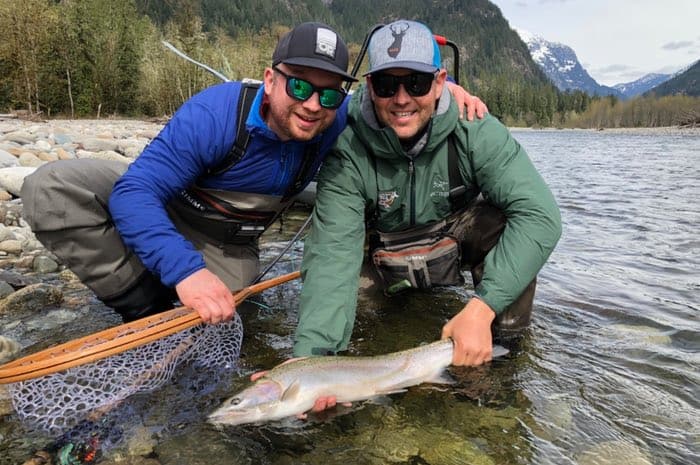
Finding Fish That Are Not on the List But Still Legal to Possess; Rod Size Restriction
If you’re looking for a BC fishing license allowing you to fish for more than just salmon and trout, you’ll want to check out the list of non-salmon and non-trout species that are legal to possess with a BC fishing license. Here’s a look at some of the more common ones:
Sea bass: You can legally troll for sea bass in most BC coastal waters using a six or 7-foot rod. You cannot, however, keep them.
You can legally troll for sea bass in most BC coastal waters using a six or 7-foot rod. You cannot, however, keep them. Black drum: These fish are found mainly in the Gulf of St Lawrence but can also be caught off the coast of BC. You can use a three or 4-foot rod to catch a black drum.
These fish are found mainly in the Gulf of St Lawrence but can also be caught off the coast of BC. You can use a three or 4-foot rod to catch a black drum. Northern pike: These big fish are common all along the eastern seaboard from Nova Scotia to Florida and can sometimes be caught as far north as Vancouver Island. You need a five or 6-foot rod to catch the northern pike. These big fish are common all along the eastern seaboard from Nova Scotia to Florida and can sometimes be caught as far north as Vancouver Island. You need a five or 6-foot rod to catch the northern pike. Muskie: These fish are found in lakes and rivers in Ontario, Quebec and New Hampshire but are not shared on the BC coast. They are also called muskellunge, muskie or northern (or lake) pike. You will need a 5 – 6 foot rod to catch these fish. These fish are found in lakes and rivers in Ontario, Quebec and New Hampshire but are not shared anywhere on the BC coast. They are also called muskellunge, muskie or northern (or lake) pike. You will need a 5 – 6 foot rod to catch these fish.
Walleye: Walleye are found in the Great Lakes, Lake St. Clair and the Hudson Bay area of northern Ontario but are uncommon in BC. You can find them on the west coast from Alaska to North Vancouver Island. They’re usually caught between April and September. It would help if you had a 7-foot rod to land walleye, although occasionally, you may get lucky with smaller walleyes on a 6-foot rod, so it pays to keep practicing.
These fish are found in the Great Lakes, Lake St. Clair and the Hudson Bay area of northern Ontario but are uncommon in BC. You can find them on the west coast from Alaska to North Vancouver Island. They’re usually caught between April and September. You need a 7-foot rod to land walleye, although occasionally, you may get lucky with smaller walleyes on a 6-foot rod, so it pays to keep practicing. Muskie: Muskies are found in eastern Canada and parts of the United States. They inhabit rivers, lakes and streams in the temperate areas of this country but aren’t very common there. In BC, muskies are only seen in small numbers in Lake St. Clair, where they can be found most of the year, from the end of May to the end of September. You will need a 9 – 10 foot rod to land a muskie! Pickerel: A small freshwater fish, pickerel are common in the St. Lawrence River basin. Depending on the season, they can be caught by rod and line from April to August. You need a 5-foot rod to catch some pickerel, but they can usually be found on 6-foot rods in the summer months.
How do you catch and keep your first fish?
Learning to tie flies is not tricky, but it takes practice. Regardless of the type of fly fishing you decide (floating line, fly rod, spinning or baitcasting), the basic principles remain the same. And yes, there are different ways to tie flies, and each person has their style of tying flies. But, in general, I use the fly-tying techniques I teach daily. They have proven to be successful and reliable for me over many years. Most of my fly-tying materials are at your local fly shop or www.flytying.com. Some materials you will need are thread (paracord can also work), bobbins, dubbing material such as fur hackle, deer hair, rabbit fur and horse hair (depending on what type of fly you want to tie). Many more include hooks, hackle pliers, scissors, hackle barbs, thread needles and wire cutters. You don’t necessarily need a lot of hooks either since you can tie two or three flies with one hook.
A few other things to remember: You need to tie your thread to allow you to remove it quickly and easily. I use a small amount of thread called “tape” for this, which is your standard sewing thread. It is not the type of thread you would use on sewing machine needles, and it is not cotton. It is tapered at the end to rip it out without tearing.
FAQ
1. Who needs a fishing license in BC?
Anyone who wants to fish in freshwater or saltwater in BC needs a valid fishing license, including residents and non-residents.
2. How do I get a BC fishing license?
You can purchase a BC fishing license online through the BC government’s website or at a licensed vendor, such as a tackle shop or sporting goods store. You will need to provide your personal information and pay the required fees.
3. What types of fishing licenses are available in BC?
Several types of fishing licenses are available in BC, including freshwater, saltwater, and combination licenses. Different durations are available, ranging from one day to one year.
4. How much does a BC fishing license cost?
The cost of a BC fishing license depends on the type of license and duration you choose. Prices range from around $10 for a one-day freshwater license to several hundred dollars for a multi-year combination license.
5. Are there any restrictions on fishing in BC?
Yes, there are restrictions on fishing in BC, including bag limits (the number of fish you are allowed to catch and keep), size limits (the minimum and maximum size of fish you are allowed to keep), and seasonal closures (times of the year when certain species are off-limits). It’s essential to research the specific regulations for the area you plan to fish in and to follow all guidelines to ensure sustainable fishing practices.
6. Do I need to carry my fishing license with me while I’m fishing in BC?
Yes, you must carry your fishing license while fishing in BC and produce it upon request by a conservation officer or other authorized person.
Conclusion
This is the guide if you’re considering getting a BC fishing license. In it, we will cover everything from what type of fishing license you need to where to find information on applying for one. We’ll also give you tips on how to get started fishing and some advice on what bait and tackle to use when out in the wild. So whether you’re looking to fish for fun or want to make money, this guide covers you.
- Yonge-Dundas Square in Toronto is Now Called “Sankofa Square” - December 17, 2023
- Best Western Brooks’ SureStay Plus debuts in Alberta - December 16, 2023
- Air Canada Arrives in Tulum, Mexico as the First Canadian Airline - December 16, 2023
